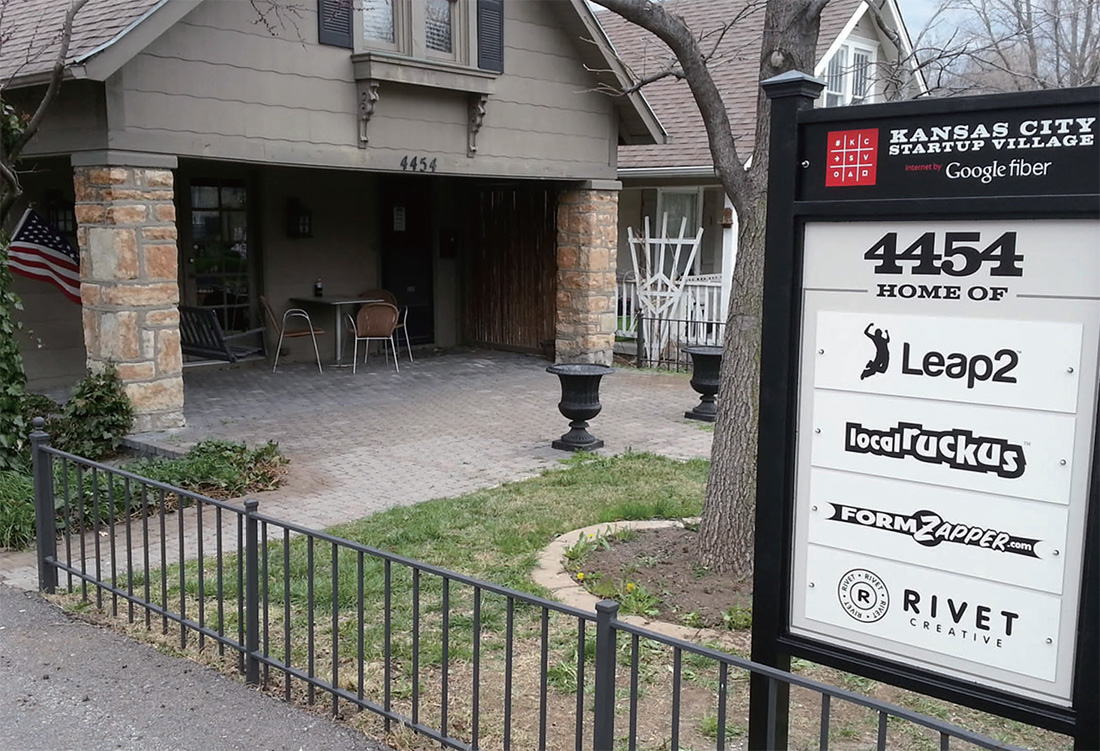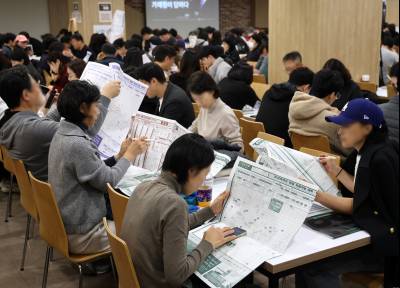- (Free MP3) 미국 스타트업계의 빈부격차 심하다

THE STARTUP FREEZE-OUT - Silicon Valley is killing entrepreneurship. Weird, right?
Over the past few years, we’ve seen two apparent crosscurrents in the startup waters. One is the tech explosion in Silicon Valley, where it seems like even your great-aunt who still looks up numbers in the phone book could launch an app with a silly name and get $50 million in funding. The other trend is an overall decline in entrepreneurship across the U.S.-revealed by statistics and felt in places like Atlanta, Kansas City, Missouri, and smaller towns.
No one has proved a direct link between the two trends-it’s possible there is no correlation, but, then again, a jury let O.J. off too. The case against Silicon Valley is compelling. We live in an increasingly winner-take-all society-a dynamic exacerbated by recent technologies such as cloud computing and social media. And when it comes to entrepreneurship, Silicon Valley is the clear winner, taking it all. New York does OK as the No. 2 (the Lyft to Silicon Valley’s Uber; the Hunt’s ketchup to the Valley’s Heinz). Everywhere else gets the scraps.
Almost any way you measure it, you’ll find a vast startup gap between Silicon Valley and the rest of the country. Look at the money going into companies. Venture capital firms in 2014 pumped more than $32 billion into startups based in the stretch from San Francisco to San Jose, according to the National Venture Capital Association. That’s twice as much as all of the venture capital put into companies in all of the rest of the U.S. New York and Boston are neck and neck at No. 2, at about $4 billion each. After that, the drop-off is steep.
Or look at the daily fundings from all over the world listed in newsletter StrictlyVC. On May 29, for instance, StrictlyVC reported that Wealthminder in Reston, Virginia, raised $1.5 million, CyberFlow Analytics in San Diego got $4 million and Twenga in London got $11 million-while Silicon Valley’s Beepi, a two-year-old platform for selling used cars, got $300 million to add to the $80 million it already raised. Just being in Silicon Valley seems to get you 10 times more money.
At the same time, U.S. entrepreneurs have been starting about 25 percent fewer companies in the 2010s compared with the early 2000s, according to data from the Census Bureau. A 2014 report from the Brookings Institution said the decline in entrepreneurship “points to a U.S. economy that has steadily become less dynamic over time.” Tech pundit and former IBM strategist Irving Wladawsky-Berger wrote: “Why is entrepreneurship on the decline when starting a company has never been easier? This is a truly surprising paradox.”
The leaders of the Greater Kansas City Chamber of Commerce recently convened to discuss this. Four years ago, they launched a program aimed at “becoming America’s most entrepreneurial city”-which, as a goal, was already a stretch, like Kim Kardashian aiming to become America’s next great neurosurgeon. Not a big surprise that the city ran into a wall: Entrepreneurs there had a hard time getting funded. “We’ve seen a number of companies leave the area because of a lack of capital formation here,” said Terry Dunn, chairman of the city’s chamber of commerce.
A simple link between these trends might go like this: There’s only so much money to be invested into startups, so if more of it is going to Silicon Valley, less of it is available to go elsewhere.
But there’s even a slight kink in that hose. In Silicon Valley, the number of companies being started is down from record levels of the dot-com boom years of 1995 to 2000.
Add it all up, and money that at one time might’ve been spread among lots of young companies across the country is now getting lasered into a handful of companies on one 50-mile strip of land. This helps explain the crazy-ass valuations we’ve been reading about-Uber worth $50 billion; Slack worth $3 billion. All the money is chasing the few presumed winners.
The blame goes to the tech universe we’ve created. More of life and business is becoming digital. Industries, like personal transportation, that never thought they were digital increasingly get disrupted by digital newcomers, like Uber and Lyft. Once a business is digital and in the cloud, one company can quickly take over the whole sector. You create a product or service on an app in the cloud, and it instantly is available to the world. (Very different from physical businesses, like making a refrigerator or opening a restaurant. Those take time and far more resources.) If it takes hold and gets a pile of funding to secure its dominant position, potential competitors anywhere else quickly get frozen out.
Venture capitalists have told me that smart investors know this, and they don’t want to invest in a me-too startup that will have little chance of making a big splash. That’s why a lot of entrepreneurs find they don’t even get a chance to get started.
Another recent trend is no doubt contributing to this problem. Companies are raising bigger private rounds of funding and putting off going public. That means fewer private investors are deciding where the money goes instead of a broad public base of investors, and a whole lot of those private investors are sitting in Silicon Valley offices.
A growing number of smart people think this situation is not a good thing. The success of Silicon Valley isn’t firing up other regions-the flow seems to be going the other way, from the rest of the country to Silicon Valley. It’s not Silicon Valley’s fault. This is the outcome of the technology we’ve set up. We already know that a lot of money is getting concentrated in fewer hands-that whole 1 percent thing. Now it’s also going into fewer geographic places. And absent entrepreneurship, the places left out have little chance of renewing themselves for the modern era.
Steve Case, founder of AOL, is so concerned by this that he is traveling the country by bus, holding startup contests in cities like Atlanta and Richmond, Virginia. “We’ve found some great entrepreneurs with a lot of ideas who are not getting capital,” Case tells me. He’s trying to help give them a jump-start, but it might be a quixotic cause.
Just tell your great-aunt that if she can’t fund her app in Albuquerque, she should move to Palo Alto. She could be cruising down the 101 in a Maserati in no time.
미국 스타트업계의 빈부격차 심하다 - 실리콘밸리는 부익부, 나머지 지역은 빈익빈으로 기업가정신 심한 불균형 이뤄
지난 수 년 간 스타트업계에선 두 가지 흐름이 교차했다. 하나는 실리콘밸리를 중심으로 일어난 폭발적 기술 발전이다. 이곳에선 아직도 전화번호부를 들여다보는 할머니가 우스꽝스런 이름으로 출시한 앱조차 5000만 달러 투자를 받을 듯하다. 또 다른 경향은 미 전역에 걸친 기업가 정신의 감소다. 통계적으로 나타날 뿐 아니라 애틀랜타, 캔자스시티, 미주리, 여타 작은 마을에선 누구나 실감할 수 있다.
이 두 흐름 간의 직접적인 연관은 아무도 입증하지 못했다. 어쩌면 아무 상관관계가 없을지도 모른다. 실리콘밸리를 둘러싼 사건은 아주 흥미롭다. 우리는 승자독식의 사회에 살고 있다. 클라우드 컴퓨팅, 소셜미디어 같은 최신 기술이 역동적으로 상황을 악화시킨 결과다. 기업가 정신의 측면에서도 그렇다. 실리콘밸리는 승자다. 모든 걸 독식한다. 2인자 뉴욕도 그럭저럭 제 몫은 챙긴다. 나머지 지역은 찌꺼기만 주워먹는 격이다.
어떤 잣대를 들이대든 실리콘밸리와 나머지 지역 간의 스타트업 차이는 어마어마하다. 기업에 흘러들어가는 돈을 보자. 미 벤처투자협회에 따르면 지난해 벤처투자업체들은 샌프란시스코에서 새너제이에 걸쳐 있는 스타트업들에 총 320억 달러를 쏟아부었다. 다른 지역 스타트업에 흘러들어간 벤처투자자금 전체를 합한 것보다 2배는 많은 액수다. 뉴욕과 보스턴은 각각 40억 달러가량을 유치하며 막상막하로 2위를 겨뤘다. 3위부터 그 격차는 한층 더 가파르다.
업계 소식지 스트릭틀리VC가 집계한 전 세계 일일 투자액도 마찬가지다. 지난 5월 29일을 예로 들면 스트릭틀리VC는 버지니아주 레스턴의 자산관리업체 웰스마인더가 150만 달러, 샌디에이고의 사이버플로 애널리틱스가 400만 달러, 런던 트웽가가 1100만 달러를 모금했다고 밝혔다. 이에 비해 설립한 지 2년 된 실리콘밸리의 중고차 거래 플랫폼 비피는 이날 보유자산 8000만 달러에 3억 달러를 더했다. 실리콘밸리에 있다는 것만으로도 10배 더 많은 돈을 받을 자격이 주어지는 듯하다.
그와 동시에 인구조사국에 따르면 2010년대 미 기업가들은 2000년대 초반에 비해 25% 적은 회사를 설립했다. 브루킹스 연구소는 지난해 한 보고서를 통해 기업가 정신의 감소가 “시간이 지날수록 역동성을 잃어가는 미국 경제를 보여준다”고 분석했다. 업계 전문가이자 전 IBM 전략가였던 어빙 블라다프스키-버거는 이렇게 썼다. “회사 설립이 쉬워지는데 기업가 정신이 줄어드는 이유는 무엇인가? 놀라운 역설이라 하지 않을 수 없다.”
최근 캔자스시티 상공회의소 임원들은 이런 경향을 놓고 논의를 가졌다. 그들은 4년 전 “미국에서 가장 기업가 친화적인 도시”가 되기 위한 프로그램을 개시했다. 마치 미국의 셀레브리티 킴 카다시안이 미국의 위대한 차세대 신경외과의사가 되겠다는 소리나 다름없다. 이 목표가 곧 넘기 힘든 벽에 맞닥뜨린 것은 당연한 이치다. 그곳 기업가들은 투자금을 유치하기가 어려웠다. “자금이 모이지 않아 떠나는 기업이 많다”고 캔자스시티 상공회의소의 테리 던 회장은 말했다.
배치되는 듯한 두 흐름을 잇는 연결고리는 단순하다. 스타트업에 아무리 돈이 많이 몰리더라도, 그 대부분이 실리콘밸리에 쏠린다면 나머지 지역으로 향하는 돈은 그만큼 적어진다.
그뿐만이 아니다. 실리콘밸리에서 설립되는 기업 수는 닷컴붐이 일었던 1995~2000년 기록한 최고 수치보다 적다. 게다가 과거라면 전국의 신생 업체에 분배됐을 돈이 80㎞ 남짓한 땅덩이의 한줌 기업에 몰린다. 이는 최근 일부 기업이 어떻게 엄청나게 높은 가치평가를 받는지 설명해준다. 이를테면 우버의 기업 가치는 500억 달러, 슬랙은 30억 달러다. 모든 돈이 승리가 예정된 소수의 기업만을 향한다.
문제는 우리가 만들어낸 IT세상이다. 우리의 삶은 갈수록 디지털화한다. 개인 운송수단처럼 디지털과 무관하다고 여겨지던 산업조차 우버나 리프트 같은 디지털 신생업체의 위협을 받는다. 한 분야가 일단 디지털화하고 클라우드로 들어가면 기업 하나가 그 분야 전체를 순식간에 점유할 수 있다. 클라우드에 앱을 만드는 순간 전 세계인이 그 앱을 사용 가능하다. 냉장고나 음식점처럼 시간과 자원이 소요되는 물리적 사업과는 아주 다르다. 선두주자의 이점을 갖고 막대한 투자를 받아 우세를 유지하기만 하면 잠재적 경쟁자들은 빠르게 밀려날 수밖에 없다.
벤처투자자들은 똑똑한 투자자라면 이 사실을 잘 안다고 말한다. 그들은 큰 이익을 낼 가능성이 거의 없는 후발주자에 투자하려 들지 않는다. 수많은 기업가들이 시작할 기회조차 얻지 못하는 이유다.
이런 문제를 부채질하는 최신 추세는 또 있다. 기업들은 기업공개(IPO)를 미루고 공개적인 투자를 받지 않는다. 그 결과 대중이 아니라 실리콘밸리에 사무실을 두고 있는 소수의 개인 투자자만이 돈의 흐름을 결정한다.
갈수록 많은 전문가는 현 상황을 좋지 않다고 본다. 실리콘밸리의 성공이 다른 지역으로 퍼지지 못하고 있다. 오히려 다른 지역의 자본이 실리콘밸리에 집중된다. 실리콘밸리의 잘못은 아니다. 우리가 만든 IT기술의 결과다. 갈수록 많은 자본이 소수에 집중된다는 사실은 이미 잘 알려져 있다. 자본 집중은 이제 일부 지역에서도 나타난다. 기업가 정신이 없다면 이런 지역들은 스스로를 혁신할 기회를 얻기 힘들어질 것이다.
AOL을 설립한 스티브 케이스는 이런 추세를 염려한다. 그는 버스를 타고 미 전역을 돌면서 애틀랜타, 리치먼드 같은 도시에서 스타트업 대회를 연다. “투자를 받지 못했지만 아이디어가 뛰어난 기업 몇 개를 찾아냈다”고 케이스는 내게 말했다. 케이스는 그 기업가들이 도약하도록 도우려 하지만, 공상에 가까운 사례일 가능성도 있다.
여러분의 할머니에게 뉴멕시코주 앨버커키에선 투자를 받을 수 없으니 팔로알토로 이사하라고 알려주시라. 머지 않아 마세라티를 타고 캘리포니아의 101번 고속도로를 질주할지도 모를 일이다.
- 번역 이기준
ⓒ이코노미스트(https://economist.co.kr) '내일을 위한 경제뉴스 이코노미스트' 무단 전재 및 재배포 금지










![갓 잡은 갈치를 입속에... 현대판 ‘나는 자연인이다’ 준아 [김지혜의 ★튜브]](https://image.isplus.com/data/isp/image/2025/11/21/isp20251121000010.400.0.jpg)
![딱 1분… 숏폼 드라마계 다크호스 ‘야자캠프’를 아시나요 [김지혜의 ★튜브]](https://image.isplus.com/data/isp/image/2025/11/09/isp20251109000035.400.0.jpg)



당신이 좋아할 만한 기사
브랜드 미디어
브랜드 미디어
은행 대출금리에 '법적비용' 전가 못한다…위반시 행정제재
세상을 올바르게,세상을 따뜻하게일간스포츠
일간스포츠
이데일리
변요한♥티파니 영, '애정 가득' 자필 편지
대한민국 스포츠·연예의 살아있는 역사 일간스포츠일간스포츠
일간스포츠
일간스포츠
`광주 도서관 붕괴` 시공사 압수수색, 관계자 출국금지…수사 속도(종합)
세상을 올바르게,세상을 따뜻하게이데일리
이데일리
이데일리
불닭볶음면이 만든 1조 매출…삼양식품 신용등급도 상승세
성공 투자의 동반자마켓인
마켓인
마켓인
[용호상박 K바이오] ADC ‘항체’ 기반 지놈앤컴퍼니와 에임드바이오
바이오 성공 투자, 1%를 위한 길라잡이팜이데일리
팜이데일리
팜이데일리